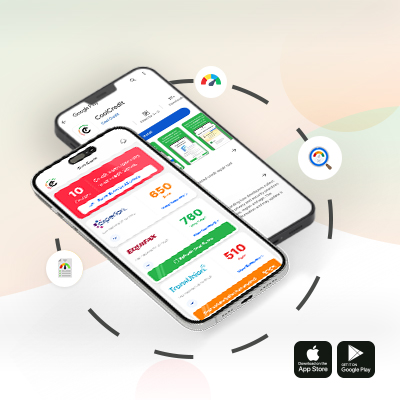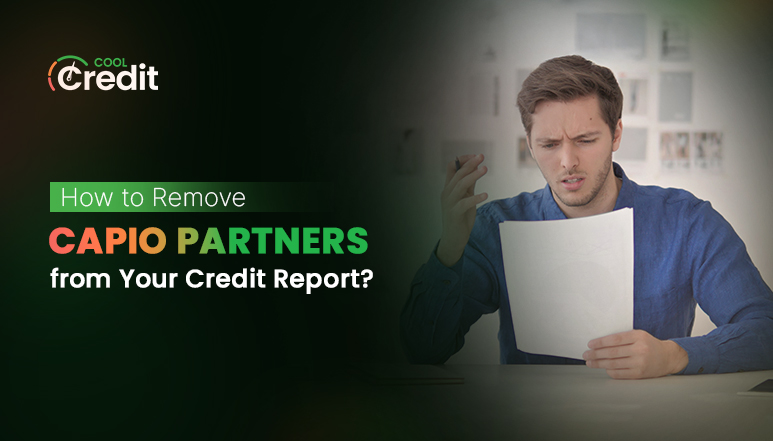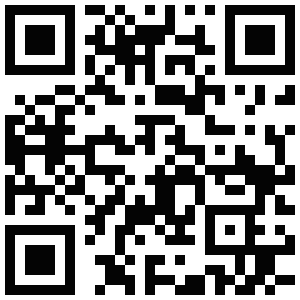
Buying Out A Car Lease – Everything You Need to Know
Leasing out a car is a convenient and cost-effective way to own a new set of wheels every few years. However, when the lease term nears its end, lessees mostly have two options: either sign a new lease or return the car.
But did you know that there is a third option worth considering?
It is buying out a car lease!
In this blog, we discuss in detail the pros and cons of buying out a car lease and whether it’s worth returning or keeping. Additionally, we’ll understand its effect on your credit score and what financing options are available to you should you consider a car lease buyout.
Revolutionize Your Credit Journey with AI Credit Repair
Get StartedWhat Is a Car Lease Buyout?
A car lease buyout means purchasing the leased vehicle at the end of the lease term or sometimes even before the lease term ends. There are two ways you can go about it which are discussed further in the blog.
Questions to Ask Before Buying a Car Lease
When deciding whether to buy out your car lease, it's important to thoroughly evaluate various factors to ensure they align with your financial and personal needs. Here’s what you should check:
- Do You Drive Past Your Mileage Limits?
When leasing a car, lenders often specify a mileage limit that you need to adhere to. Driving more than this limit incurs a cost per mile. If you frequently exceed your mileage limits, it might be better to opt for a car lease buyout to avoid accumulating these added costs.
- Is It the Perfect Set of Wheels?
Assess your car’s condition before planning the steps ahead. An old car often requires frequent, expensive repairs, which will only add to your ownership costs. On the other hand, a well-kept and relatively new car could be worth the investment. Since you have driven the car beforehand, you will be better suited to gauge how well the car has been maintained.
- What Is Its Market vs. Residual Value?
Market Value: The amount you can expect to pocket if you sell your vehicle. Research the current market value of the car using online tools like Kelley Blue Book or Edmunds to get an accurate estimate.
Residual Value: The value of your vehicle at the end of the lease term, often stated at the beginning of the lease. If the market value is higher than the residual value, buying out the lease can be a good deal.
- How Committed Are You?
Buying out a car lease and then keeping the car for only a couple of months makes little sense. Consider what your long-term plans are. If you wish to keep the car for several more years, buying out the lease is worthwhile. Otherwise, it might be better to lease a new one or purchase a new car.
- Will It Even Save You Some Bucks?
What’s the point of buying out a car lease if it only adds to your expenses? Simply do the math. Calculate the total cost of buying out the lease, including any remaining payments, buyout price, taxes, and fees. Compare this with the costs of leasing a new car or buying a different used car. Consider insurance, maintenance, and repair costs as well. It will give you a fair idea of how to go about it.
Early vs Standard Lease Buyout
Having considered all the above questions, there are two ways you can buy out a car lease:
Early Lease Buyout
As the name suggests, an early lease buyout lets you purchase the vehicle before the lease term officially ends. Not all lease contracts offer this type of arrangement, so it's important to check your lease agreement for eligibility. This option can be particularly advantageous if you have exceeded your mileage limit or if the vehicle requires significant repairs that would be costly at the lease end.
However, before proceeding with an early lease buyout, consider the following factors:
- Residual Value of Your Vehicle: It's essential to compare this value with the car's current market value to ensure you're making a financially sound decision.
- Amount You Owe: Calculate the total amount you owe, including any remaining lease payments and the buyout price. Ensure that you have a clear understanding of these costs before committing to the buyout.
- Depreciation and Market Value: If the market value is less than the residual value, you may end up paying the difference. It indicates that the vehicle depreciated quicker, making an early lease buyout less attractive financially.
Standard Lease Buyout
A standard car lease buyout occurs at the end of the lease term. This is a more common approach and allows you to purchase the vehicle for its residual value, which was predetermined at the start of the lease agreement. This residual value is based on the leasing company's estimate of what the car will be worth at the end of the lease.
Pros and Cons of Buying Out a Car Lease
| Pros | Cons |
| Familiarity with the Vehicle: You know the car’s history and any issues it may have. | Depreciation: Cars lose value quickly, and you might be buying a depreciated vehicle. |
| Avoiding Lease-End Fees: No excess mileage, wear-and-tear, or disposition fees. | Financing Costs: Loans for buyouts come with interest, which adds to the overall cost. |
| Potential Cost Savings: The buyout price might be lower than the car's current market value. | Maintenance and Repair Costs: Older cars may need costly repairs and maintenance. |
| No Need for a New Lease: Saves the hassle of negotiating new leases. | Opportunity Cost: Money spent on the buyout could be used for other investments or needs. |
| Building Equity: You will eventually own the car, unlike with leasing. | Limited Flexibility: Committing to buyout limits your ability to switch to newer models or different vehicles frequently. |
Let's Talk Finances
Now that you have carefully considered the various options available to you, let’s square down on finances. If you decide to go ahead with buying out a car lease, one of the financing options available to you is to opt for a loan.
Car Lease Buyout Loan
A car lease buyout loan finances the purchase of your leased vehicle. When you decide to buy out your car lease, you’re essentially purchasing the car. It's important to remember that your lease payments do not count toward ownership of the vehicle. You need to secure new funds to "buy" the car you had leased earlier. Here are key points to consider:
- Capital Requirement: To “purchase” your leased car, you will need capital. A car lease buyout loan is one option to consider unless you have a separate stash to fund your buyout process. This loan provides the necessary funds to purchase the vehicle at the buyout price stated in your lease agreement.
- Shop Around for Loans: It’s important to shop around for your loan so that you can compare annual percentage rates (APRs) and terms from different lenders. This comparison helps you secure the best possible deal.
- Interest Rates and Fees: Keep in mind that a lease buyout loan is essentially a used car loan. As such, the interest rate and fees can be higher than those for a new car loan. This is because used cars are seen as a higher risk by lenders due to potential depreciation and maintenance issues.
Buying Out a Car Lease With a Bad Credit Score
When considering a car lease buyout, your credit score plays a crucial role in determining your financing options and terms. As a general rule of thumb, a higher credit score fetches you lower interest rates, while a lower score results in higher interest rates.
Car leases and car loans are categorized as installment loans, meaning you’ll borrow a specific amount of money and pay it back over a set period with regular monthly payments.
Now, two scenarios arise with regard to your credit score:
Your credit score is more than 690
This is generally perceived as a good credit score and will fetch favorable terms on your car lease buyout loan. Lenders will see you as a low-risk borrower with a good track record of financial history.
Your credit score is less than 690
With a low credit score, you may have to settle for not-so-favorable terms and interest rates. So, it’s important to weigh your options.
The question now arises, should you go for a car lease buyout loan if you have a bad credit score?
It is important to keep in mind that higher interest rates will increase your overall cost of borrowing. It is advisable to do a cost comparison. Evaluate the total cost of the buyout, including higher interest rates, against leasing a new car or purchasing a different used car.
Fast-Track Your Credit Fix with Our Credit Repair App
Try It NowHow Will It Impact Your Credit Score?
Opening a new line of credit, like a car lease buyout loan, adds to the new credit category on your credit report. This can initially lower your score, but managing the loan responsibly will mitigate this impact.
The lender will also initiate a hard inquiry when you apply for a lease buyout loan. This can temporarily lower your credit score by a few points. However, as you make on-time monthly payments toward your new loan, your credit score should bounce back quickly.
| Bad Credit? CoolCredit can help! CoolCredit is a DIY credit repair app where you can check your credit report for free. You also get resources where you get the know-how on ways to improve your credit score. You also have the provision to generate AI-assisted dispute letters to file disputes for incorrect entries on your credit report. CoolCredit offers all this and much more. It is your go-to app for all things credit! |
Conclusion
Deciding on buying out a car lease, returning the car, or opting for a new one requires careful consideration of various factors. Buying out a lease can be a smart move if you’re satisfied with the car, its residual value is favorable, and you prefer avoiding lease-end fees. However, consider the potential for increased maintenance costs and depreciation.
Ultimately, your financial situation, credit score, and personal preferences will play significant roles in this decision. Evaluate your options thoroughly, consider consulting with a financial advisor, and make an informed choice that best aligns with your needs and circumstances.
FAQs
Q: How to Buy Out a Car Lease?
A: To buy out a car lease, review your lease agreement for the buyout price, secure financing if necessary, and contact your leasing company to initiate the process. Complete any required paperwork and make the payment to transfer ownership.
Q: Does My Credit Score Affect the Car Lease Buyout Process?
A: Yes, your credit score affects the terms of your lease buyout loan. A higher credit score can help you secure lower interest rates, while a lower score may result in higher rates and less favorable loan terms.
Q: Can I Sell a Leased Car?
A: Yes, you can sell a leased car, but you must first buy out the lease. Once you own the car, you can sell it like any other vehicle. Ensure the sale price covers the buyout amount and any associated fees.
Q: How Much Does It Cost to Lease a Car?
A: The cost to lease a car varies based on the vehicle's make and model, the lease term, mileage limits, and your credit score. Typical costs include a down payment, monthly lease payments, taxes, and fees.
Q:What Are the Benefits of Leasing a Car vs. Buying a Car?
A: Leasing a car often results in lower monthly payments and allows you to drive a new vehicle every few years without worrying about selling or trading in. Buying a car builds equity over time and allows unlimited mileage and customization.





